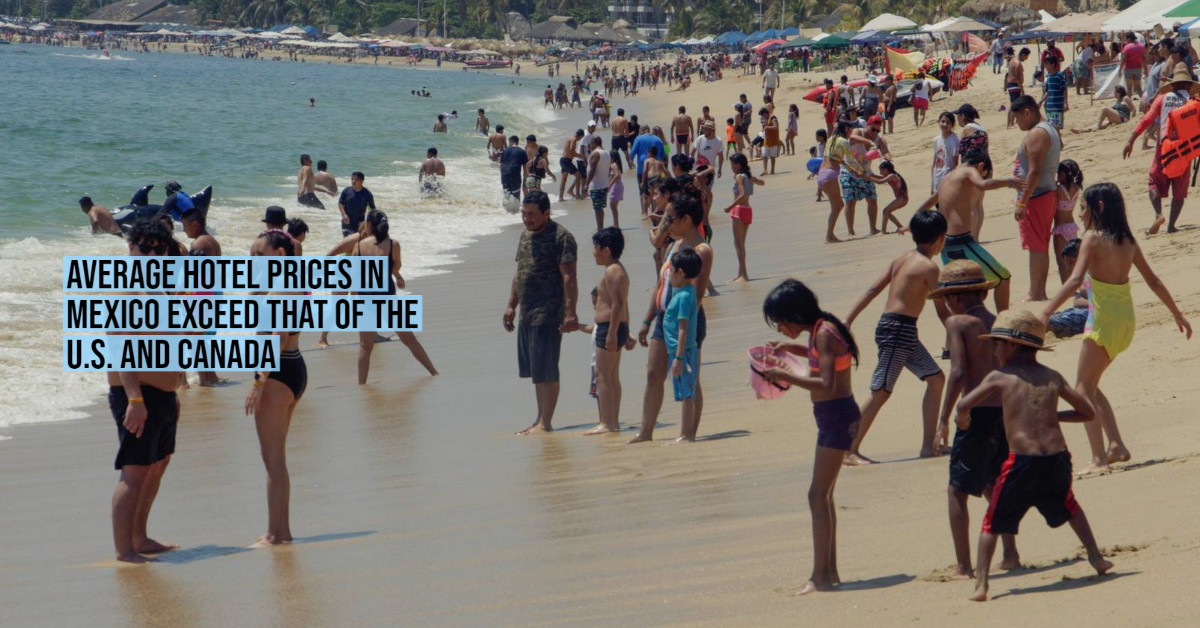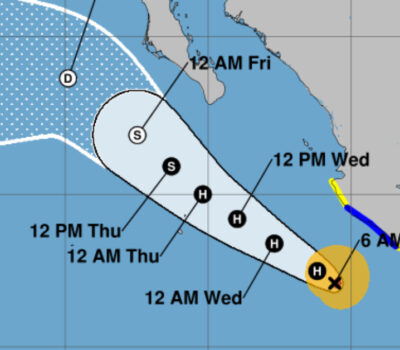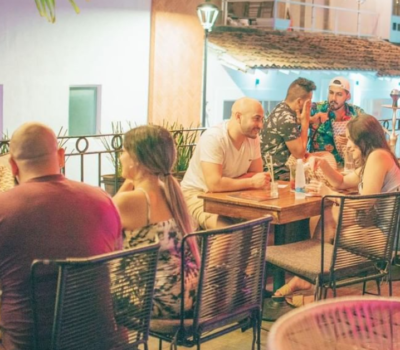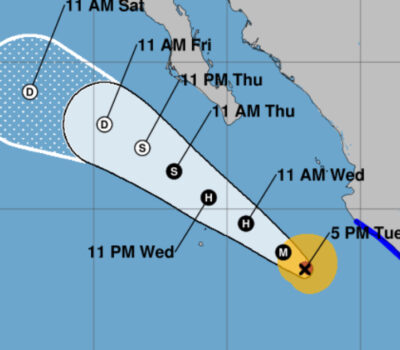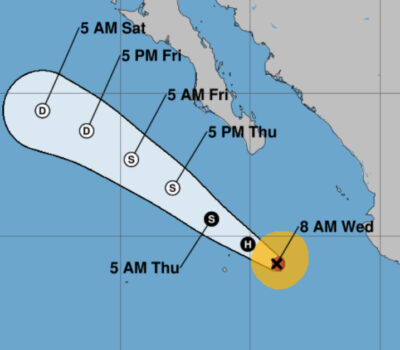The open skies policy and zero restrictions for foreign travelers who wish to vacation in Mexico during the first two years of the coronavirus pandemic are beginning to show their results:
According to data from STR, a hotel market data intelligence company, hotels in Mexico above 4 stars, which are the ones that international travelers tend to prefer, closed last year with higher room revenues recorded since the beginning of the pandemic, a sign of recovery, despite the fact that the volume of international travelers has not yet fully recovered.
“In Mexico, rates are recovered, hotels are charging much more than in 2019,” said Rico Louwe, STR sales executive for Mexico.
In December 2021, hotels in Mexico with more than four stars had average rates higher than those of accommodation in the United States and Canada; even, during the last month of 2021, the average rate in Mexican destinations shot up to $280 dollars per night, almost double the $160 dollars in the United States.
Despite having higher prices, American and Canadian tourists continued to travel to the country.
During the worst months for tourism, some destinations lowered their rates or implemented promotions to attract national and international travelers again.
Despite this, hotels on the main Mexican beaches have almost completely recovered their rates or have exceeded pre-pandemic levels, such as Los Cabos, which has a cost per available room 34 percent above what was registered at the end of 2019.
According to Louwe, Los Cabos has a luxury accommodation product that includes the rental of “villas”, a type of lodging that is higher in price, but is also aimed at longer stays, unlike other destinations in Mexico.
The Los Cabos Tourism Trust (Fiturca) has registered that a tourist who enters the country by air spends, on average, $1,000 dollars, while a tourist with high purchasing power, with an annual income of $150,000 dollars, who reaches Los Cabos spends 6.6 times what a “normal” traveler spends.
Beach destinations in Mexico are the most demanded by international tourism. According to figures from OAG, a data provider for airlines, the Mexico-United States market is the largest in terms of seat supply in the world, with more than 3.5 million, almost double the supply between Spain and the United Kingdom.
This shows that the air market between Mexico and the US is practically recovered, since it is only 0.8 percent below the seats offered in March 2019.
This demand for seats to Mexico is oriented by the trips of Americans to the main Mexican beaches. At the end of February, the Mexican Caribbean had 596,000 hotel nights sold, its highest level in the last two years, while the central Pacific region, including Puerto Vallarta, registered 395,000 nights sold as of February 26, according to data from STR.
The outlook for the Easter period for the Riviera Maya and Cancun is an occupancy that fluctuates between 60 and 55 percent of average occupancy in both destinations, while by May, half of the rooms in the Mexican Caribbean are already reserved.
According to a study carried out by Allianz Travel, for Easter and Springbreak, the beaches of Cancun, Los Cabos, and Puerto Vallarta were positioned as the three favorite international destinations for US tourism, above the Dominican Republic, Aruba, Jamaica, and the Bahamas.
Beach arrivals from US airports continue to increase. 5 of the 10 main international air routes arrive in Cancun, from Chicago, Dallas, Houston, Panama, and Atlanta, according to January figures collected by the Federal Civil Aviation Agency.
While Mexican beaches continue to see high occupancy levels, cities and business centers remain far from their pre-pandemic levels, as corporate travel remains 50 percent below pre-pandemic numbers.
The open skies policy and zero restrictions for foreign travelers who wish to vacation in Mexico during the first two years of the coronavirus . . .

